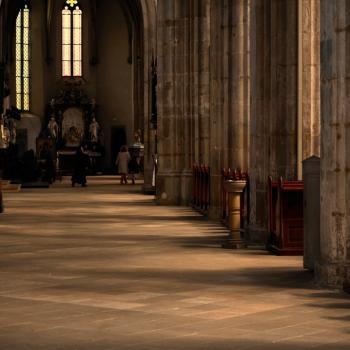It’s been a long time since I was last here, so it seems I am chronically allergic to plans. However, something has been constantly happening that has enriched my practice, even when I’m not actively doing anything. That thing is praying. In silence, in my head, vocally, with my hands, by writing, or any other way that I can think of. Recently, I started working on a prayer corner in my bedroom again, which I hadn’t had for a while, but that helped immensely.

Setting up a Prayer Corner
The name can be a bit tricky. I want to clarify that you don’t need to use a specific corner, or only a corner. You can use any space you have. Any portion of the room where you have your devotional space will be as good as any, as long as it works for you. For me, my practice has always been private, so I did mine in my bedroom. There are some statues in other places around our home, but my space is in my bedroom. That’s the most important thing.
The second thing to think about is what you will need or would like to have during those minutes. I have always loved the smell of incense and essential oils, and candles have been used in my family and country of origin for spiritual practices, so those were my priorities. Images distract me, so I’ve made sure to avoid them at all costs, even if I close my eyes while praying.
The first few times, my praying corners were my altars during my Wiccan celebrations (and I want to clarify as well, I am not Wiccan anymore; I was at the time when I discovered Witchcraft), so I never had a single, always available space. I had to put it together and then take it apart. Later on, a shelf in a closet allowed me to have a permanent altar I used for meditation and praying, which is the option that has stayed with me for the longest as I moved around.

A Sacred Space
The most important thing, however, is that you treat it as a sacred space. For me, my altar is my praying corner. It is my sacred space, so I clean it up and take care of it as much as I can, which is not always, but I do my best. You should, too. This is your communion spot with the Divine. Treat it as such. I don’t leave offerings anymore, but I show my devotion by taking care of it.
You can also set up an altar for your ancestors, whether for those related by blood or otherwise, if you don’t feel comfortable with or share the idea of a Divine energy. In theory, you can also do one for spiritual beings, such as the jinn, depending on the spiritual tradition you follow. What’s important is that you like it and take care of it as a sacred space. It has to give you hope for the future and make you feel better when you look at it.
If you achieve that, you are on the right track.

The Benefits of Praying
While it is true that science doesn’t need to prove spirituality, and vice versa, I do believe in the power of both combined. There has been a lot of discussion over the years about whether praying has any effect on the people who practice it, and so research has been done time and time again. Some come to the conclusion that there is not enough evidence, but others suggest that, even if more has to be done to be sure about it, there seems to be some positive effects.
One case is Bernstein (2020) who explains:
Researchers found that the group that practiced spiritual meditation showed greater decreases in anxiety and stress and more positive mood. They also tolerated pain almost twice as long when asked to put their hand in an ice water bath. (…) Prayer can also foster a sense of connection—with a higher power, your environment and other people. (…) Prayer can also help your marriage, according to several studies at Florida State University.
Beebe (2012) explains that it’s been discovered that “engaging in 12 minutes of personal reflection and prayer each day makes a profound impact on our brain,” it helps with neuroplasticity, and that “prayer and personal reflection help us maintain a healthy balance in life.”
Finally, in a study regarding the benefits of Salat, Islamic Prayer, Chamsi-Pasha and Chamsi-Pasha (2021, p: 92) explain that this practice “promotes relaxation and minimizes anxiety for individuals who regularly practice salat. Salat involves both cognitive and motor components (…). May slightly reduce systolic and diastolic blood pressure (…). Assist in the prevention of chronic illnesses.”
For me, I have had all these experiences, not to mention the calming effect that it has after I do it, and the hope that it comes along. I always feel more relaxed, hopeful, and positive about the outcome when I finish. Whether I do it speaking out loud, mentally, in silence, with music in the background, or in any other way, I find myself in a better mental space after each time.

References
- Beebe, G. 2012. “How Faith and Prayer Benefit the Brain“. Westmont Magazine.
- Chamsi-Pasha, M., & Chamsi-Pasha, H. 2021. “A review of the literature on the health benefits of Salat (Islamic prayer)“. Med J Malaysia, 76(1), 93-97.
- Bernstein, E. May 17, 2020. “The Science of Prayer“. The Wall Street Journal.













